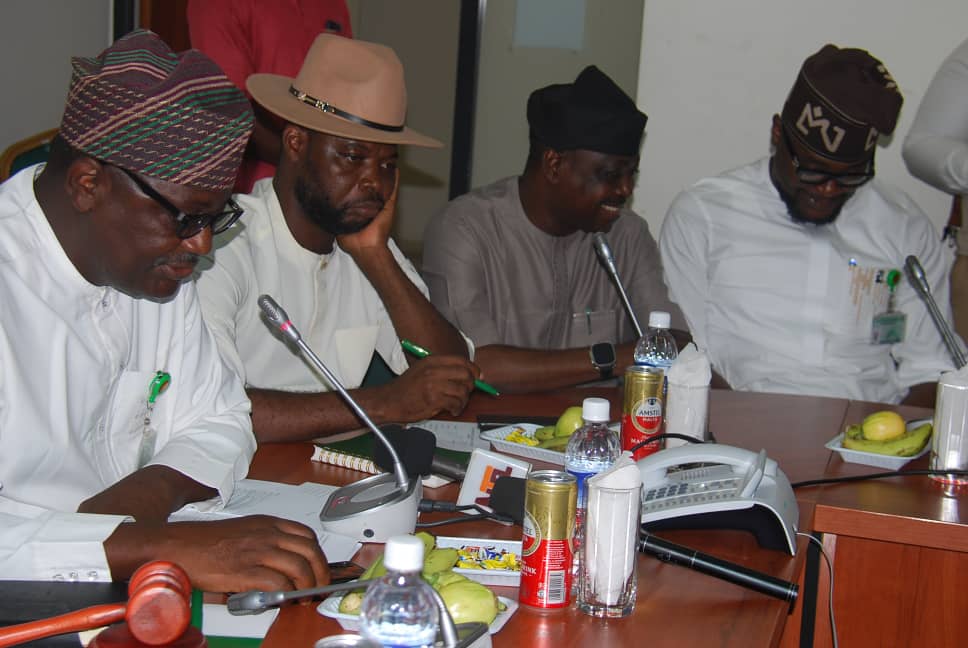Listeners:
Top listeners:
-
play_arrow
104.9FM Best rock music demo
-
play_arrow
Demo Radio Nr.1 For New Music And All The Hits!
-
play_arrow
Demo Radio Techno Top Music Radio
-
 play_arrow
play_arrow
Police Commissioner Launches Weapon and Riot Control Training for FCT Officers Democracy Radio
Reps Warns CBN Against Risks of High Interest Rates Amid Economic Recovery
todayMay 15, 2025 1

By Oluwakemi Kindness
The House of Representatives Committee on National Planning and Economic Development has urged the Central Bank of Nigeria (CBN) to reconsider the prolonged use of high interest rates to fight inflation, warning of potential adverse effects on key sectors of the economy.
Chairman of the Committee, Rep. Gboyega Nasiru issued the caution on Wednesday in Abuja during a meeting with the Statistician-General of the Federation and Chief Executive Officer of the National Bureau of Statistics (NBS), Adeyemi Adeniran.
Nasiru’s warning comes as the CBN prepares for its 300th Monetary Policy Committee (MPC) meeting scheduled for early next week.
He commended the current administration’s bold, market-driven reforms, noting that they are beginning to show positive results.
According to him, the economy is stabilizing and investor confidence is gradually returning, with Nigeria’s capital market growing by nearly 100 per cent in the past two years.
He also highlighted that the CBN has recorded its highest level of external reserves in over three years and recently posted a profit of N38.8 billion, a turnaround from the N1.15 trillion loss recorded in 2023.
Despite these gains, Nasiru raised concerns that persistently high interest rates are negatively impacting vital sectors such as manufacturing, agriculture, and Small and Medium Enterprises (SMEs)—all of which are crucial for job creation and economic inclusion.
“The Monetary Policy Rate (MPR) has been raised 10 times since January 2023, rising from 16.5 per cent to 27.5 per cent. While this was aimed at curbing demand-pull inflation, structural challenges and supply chain inefficiencies have weakened its impact,” he said.
He advised the CBN to consider a more growth-friendly monetary policy at its upcoming meeting, one that balances inflation control with support for economic expansion and job creation.
In his response, Adeniran presented recent unemployment figures from the second quarter of 2024, indicating a drop to 4.3 per cent from 5.3 per cent in the previous quarter.
However, he noted disparities along gender and location lines—female unemployment stood at 5.1 per cent compared to 3.4 per cent for males, and was higher in urban areas (5.2 per cent) than in rural areas (2.8 per cent).
He further revealed that youth unemployment remains a concern, with a rate of 6.5 per cent, and 12.5 per cent of Nigerian youth falling into the NEET (Not in Employment, Education, or Training) category. Young females had a higher NEET rate (14.3 per cent) than their male counterparts (10.9 per cent).
Adeniran assured the committee that the NBS is finalizing reports for the third and fourth quarters of 2024, which will soon be released to the public.
Written by: Democracy Radio
Similar posts
Copyright Democracy Radio -2024


